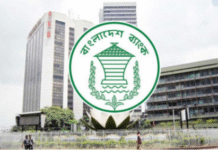

Al Hossain Chisty, a client of a private commercial bank, tried to talk to the bank’s call centre executives to get some explanation about statement related to his credit card.
He had to wait on hold for around 13 minutes before he could be connected with the executive.
“It was just irritating. The irritation intensified when they made me listen to their ads about the bank’s various products,” said the businessman who lives in the capital’s Mohammadpur.
He is one of the thousands of clients who go through similar experiences.
One customer says once he desperately tried to report an unusual transaction on his credit card. He called the call centre repeatedly for two hours but to no avail.
Later, he had to take the help of an employee of the bank to be connected with the call centre.
Another customer says he can’t reach his bank’s call centre in daytime so he always tries to call them at night.
The sufferings continue to frustrate customers even though the Bangladesh Bank took initiatives to mitigate the inconveniences clients face while getting services from call centres of various banks.
Banks have also set up call centres as part of their efforts to cater financial services over mobile or land phones to customers.
But many clients have long lodged complaints with the central bank over the services provided by call centres, saying they are made to wait for 5-20 minutes before their calls are answered.
This means clients have to bear the cost of the hold times, creating an extra financial burden for them.
If the client calls from a mobile phone and has to wait for 10 minutes, it can cost them Tk 26.60 in total, or Tk 2.66 per minute just for the waiting time, as showed by a call to one call centre of a popular bank yesterday.
On top of that, banks usually run advertisements about their products during the period when clients are made to wait before getting the opportunity to talk to a representative, according to a BB document.
With this, banks compel clients to listen to their ads about their products by charging them. “This is not a good practice,” it said.
In order to address the issue, a department of the central bank has put forward some proposals, said a BB official.
Call centres will have to answer to a client’s call within a minute of the starting period of the phone call, according to the draft proposal. If implemented, this will help clients cut the cost of receiving services over phones.
Every bank and non-bank financial institution (NBFI) will have to roll out chatbot to serve clients.
A chatbot is a computer programme that simulates human conversation, either via voice or text communication. Companies use it to engage with customers alongside the classic customer service channels of phone, email, and social media.
Clients should be allowed to use chatbots through the websites of banks and NBFIs.
“The need to communicate with the call centre will decline to a large extent if chatbots are rolled out by every lender,” the BB said in its document.
Four banks have already introduced chatbots. Mutual Trust Bank is one of them after it set up the chatbot in 2020.
“But it is yet to become popular. We have already taken several initiatives to make the window vibrant,” said Syed Mahbubur Rahman, managing director of the bank.
Voice messaging service can be another option to deal with clients’ problems, the central bank said.
Under the service, customers can complain by making phone calls in the form of voice messages. Call centre executives will later communicate with the clients to solve the issue.
The proposals were sent last week to another wing of the central bank dedicated to resolving the complaints raised by customers.
“We will take required measures to reduce customers’ sufferings in the shortest possible time,” said the central banker.
Mashrur Arefin, managing director of City Bank, said the lender had already introduced two such services in order to fulfill the customer requirements. “One is WhatsApp banking using which we receive about 350 queries every day. We reply via the system.”
The private bank has also rolled out the smart interactive voice recognition system (SIVR) and gets around 8,000 queries every day.









